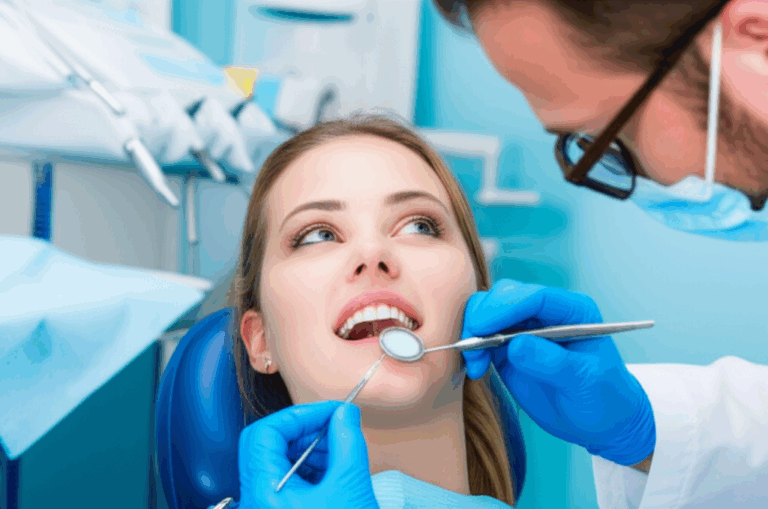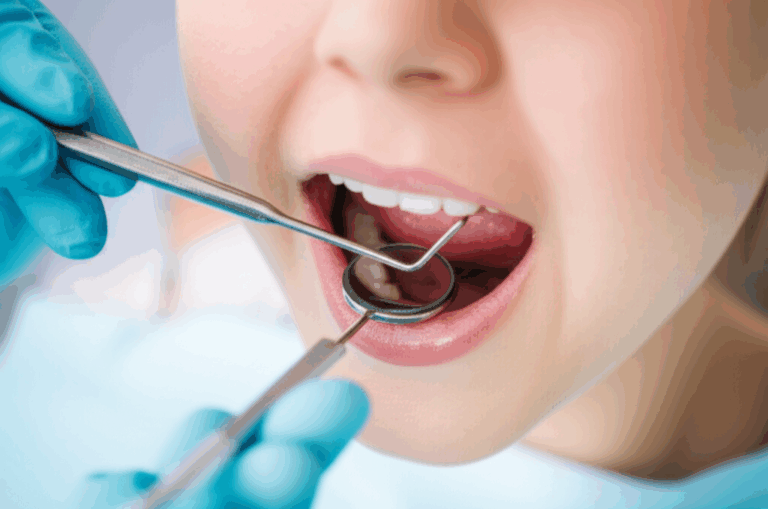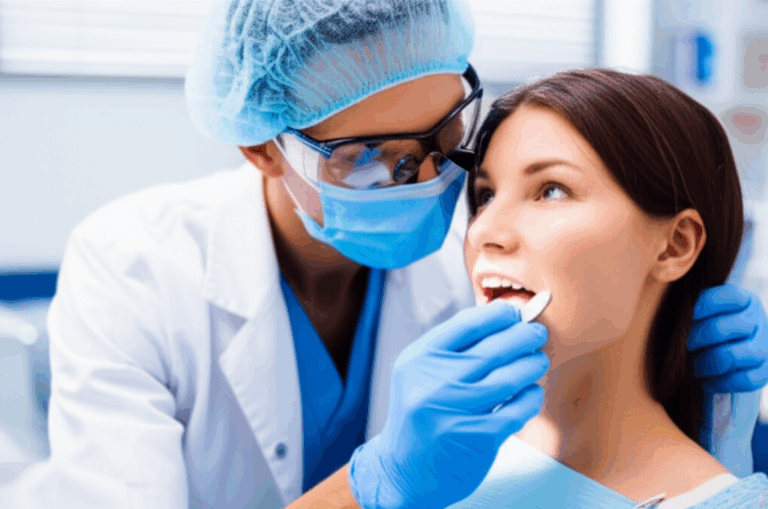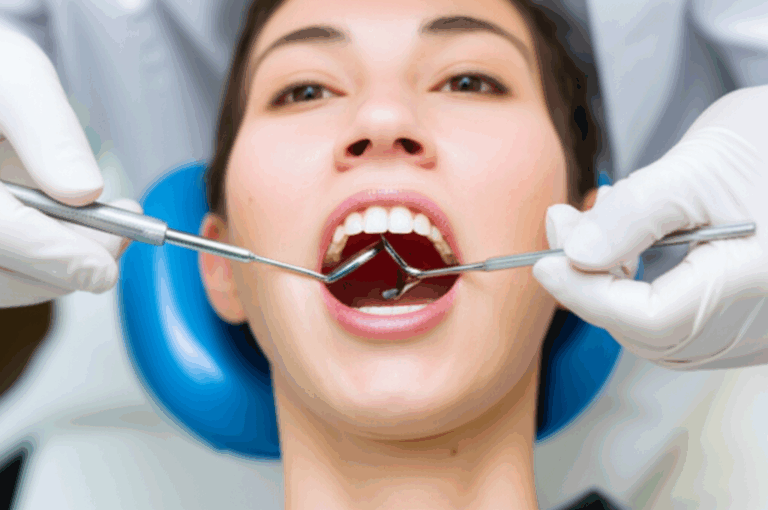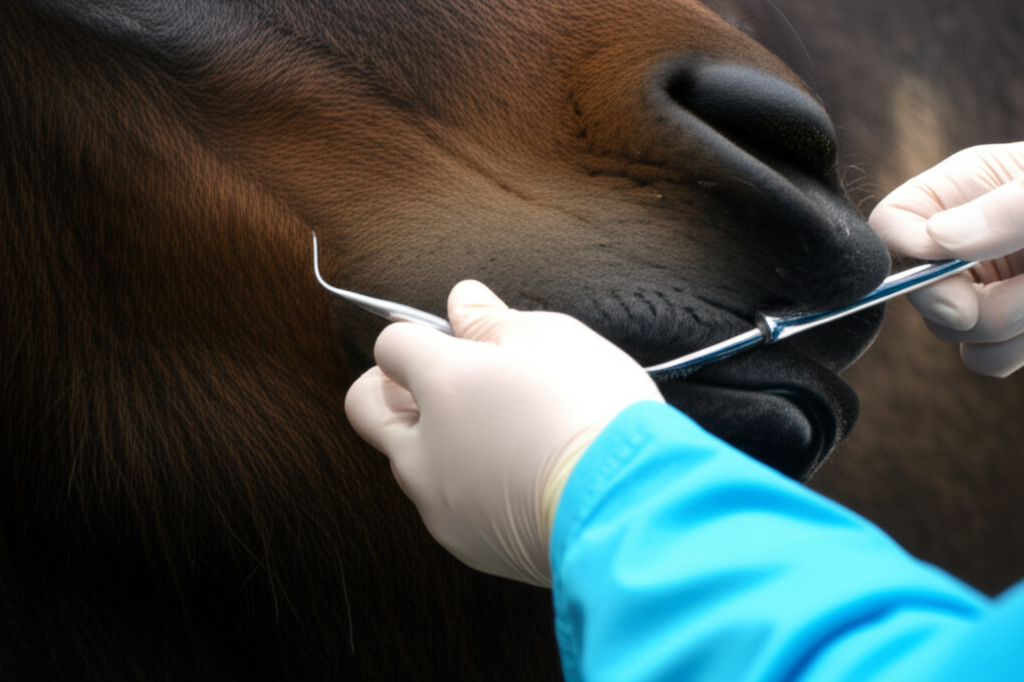
What is a Horse Dentist Called? Understanding Equine Dental Professionals
Horses use their teeth every time they eat, play, or even just neigh at a friend. But what happens when those strong teeth need care? This article answers the big question: What is a horse dentist called? It’s not just a fun fact — it helps you make the right choices to keep your horse healthy. We’ll talk about who helps horse teeth, what they actually do, why it matters, and how you can find the best person for your horse. If you care about horses or are just curious, you’re in for a treat!
Table of Contents
What Is a Horse Dentist Really Called?
Let’s start with the basics. You might hear people say “horse dentist,” but the real title is Equine Dental Technician (EDT) or Equine Veterinarian. These aren’t just fancy names—they show the special training these people have.
- Equine Dental Technician (EDT): These skilled folks mostly look after a horse’s teeth. They don’t just clean or file teeth, they look for trouble before it gets worse. They get training and sometimes get papers from groups like the International Association of Equine Dentistry.
- Equine Veterinarian: These are full-on animal doctors who know a lot about horses and also their teeth. Some animal doctors take special classes in equine dentistry so they can help with tougher teeth problems.
It’s good to know these names, especially when asking for help or talking to other horse owners.
Who Are Equine Dental Technicians?
If you ever heard someone say, “He’s the best horse dentist in the area,” they probably mean a Certified Equine Dental Technician. But what do they really do? Are they just animal dentists or something more?
Equine dental technicians mostly work on horse teeth. They don’t treat all animals—just horses. With years of training, they know how to find and fix teeth problems that can make a horse feel bad or act differently. In some places, these workers need a certificate or have to work with a vet. That means more trust for your horse.
Here’s what their training looks like:
- Learning all about horse teeth—incisors, molars, premolars, wolf teeth, and more.
- How to use tools like the power float or the hand float.
- Spotting problems: sharp tooth points, bad bites, wave mouths, gaps between teeth, or even EOTRH (a painful teeth issue).
Table: What Does an Equine Dental Technician Do?
| Task | Description |
|---|---|
| Oral Exams | Check the mouth, spot sharp points or broken teeth |
| Floating | File down sharp edges or uneven teeth |
| Bit Seats | Shape teeth for comfort with bits |
| Wolf Teeth Removal | Take out small, extra teeth near the front of the mouth |
| Dental Charting | Keep records of tooth issues and treatments |
| Advice & Preventative Care | Teach owners about care and signs of problems |
When you search for “best horse dentist near me,” you’re usually looking for an Equine Dental Technician. They help keep horses happy and pain-free!
What Does an Equine Veterinarian Do for Horse Teeth?
Think of a veterinarian as the horse doctor. They look after the whole horse, but many know a lot about horse teeth too. Sometimes, an equine dental technician can’t do the job—like if the horse needs to be made sleepy or has a nasty tooth infection.
Veterinarians can:
- Fix big teeth problems, like pulling teeth or helping with tooth infections.
- Use anesthesia for bigger jobs, making sure the horse is safe and calm.
- Help with problems that need medical care, like jawbone breaks, infections, or big swellings.
Some vets go even further. They study more to be an equine dental specialist. These folks handle really hard cases—big surgeries, jaw injuries, or stuff like EOTRH.
Still, vets usually don’t work alone. Lots of clinics use both vets and dental technicians to give the best care. If you want someone with extra skill, check their background. Ask if they are part of the American Association of Equine Practitioners (AAEP) or are certified in horse tooth care.
What Do Equine Dental Professionals Actually Do?
Looking after horse teeth is more than just brushing and flossing! When I first watched a horse tooth expert work, I was surprised—big tools, special stands, and a calm horse made it an interesting day. But what really happens when these experts come to help?
Routine Exams and Check-ups:
The horse dental worker checks out the horse’s mouth, using a speculum to hold it open. They look and feel for sharp points, broken teeth, or funny wear.
“Floating” the Teeth:
This is the main job. “Floating” means making rough edges on teeth smooth. Why? Because horse teeth keep growing, and sharp spots really hurt. The worker may use a hand float or a power float (like an electric file) to smooth things out.
Other Common Jobs:
- Pulling out wolf teeth (little extra ones that cause problems with bits)
- Shaping teeth for better bit fit
- Fixing hooks, ramps, or wave mouths (weird shapes that make chewing hard)
- Small tooth pulls, like loose baby teeth (caps)
Bigger Stuff:
For the bad stuff—broken jaws, big infections, or sicknesses like EOTRH—you need a vet. They might need to make the horse sleepy or use strong medicine so the horse stays safe. Sometimes, there’s even surgery to save a tooth.
Lists Make It Simple:
A simple horse dental check-up should mean:
- A good look and feel in the mouth.
- Filing or floating if needed.
- Looking for loose, broken, or nasty teeth.
- Writing down notes for next time.
That’s a busy day for the horse “dentist!”
Why Is Dental Care for Horses Important?
Let’s be honest—if you had a toothache, you wouldn’t want to eat or smile. Horses feel the same. Bad teeth hurt, make eating tough, and can even cause worse health problems. I’ve seen horses go from slow and sad to happy and bouncy after good tooth care.
How Teeth Affect Health and Eating:
Horses grind their food—hay, grass, grain—with big, flat teeth. If their teeth aren’t lined up right, food doesn’t get chewed like it should. That means less nutrition, possible weight loss, and tummy trouble like colic.
Dental Problems Touch Everything:
Even a tiny sharp point can make a horse:
- Drop feed (called quidding)
- Chew slow or in pain
- Lose weight or look dull
- Make too much spit
- Smell bad from the mouth
Bad Behavior Ties Back to Teeth:
Horses that toss their heads, fight the bit, or just seem grumpy might be saying, “My mouth hurts.” Horses who work or compete need regular tooth care—they can’t do their jobs if their teeth hurt.
All in all, horse dental care is not just about the mouth. It affects the whole body, the horse’s behavior, and even their attitude.
How Do You Know When a Horse Needs Dental Work?
Sometimes you see a friend struggling to eat and just know something’s wrong. Horses give signs, too, and careful owners catch teeth trouble early.
Signs a Horse Needs Tooth Care:
- Quidding (spitting out half-chewed hay)
- Taking forever to eat
- Losing weight, even if eating a lot
- Lots of drool or slobber
- Bad breath
Behavior Changes:
- Tossing the head or shaking
- Refusing the bit or acting “mouthy” when ridden
- Sudden change in mood
Physical Signs:
- Swelling on the face or jaw (could be an infection)
- Goo coming from the nose (might be from a tooth)
- Really sharp or broken teeth you can see
Story:
I once saw an old horse losing weight really fast. People thought he was just getting old. But one visit from a good horse tooth technician, and he ate better and acted young again! That’s what equine dental care can do.
How Often Should Horses Get Their Teeth Checked?
How often do you go to the dentist? Horses need visits too, but on a different schedule. Waiting too long can cause big problems, so you gotta think about age and other stuff.
Basic Guidelines by Age:
| Age Range | Check-Up Frequency |
|---|---|
| Young (0-5) | Every 6 months |
| Adult (5-15) | Once a year |
| Senior (15+) | Every 6-12 months or as needed |
- Young horses need more visits since baby teeth fall out and adult teeth grow in.
- Older horses often have worn teeth or new problems as they age.
Other Things to Think About:
- What they eat: Tough hay or grass helps wear teeth down, but soft feed doesn’t.
- How hard they work: Show or working horses may need extra care.
- Health issues: Horses with sickness or weak health need more checkups.
No matter your horse’s age or job, regular tooth care saves money and pain later on.
How Do You Find the Best Horse Tooth Specialist?
Imagine calling for a “horse dentist” and getting someone with a file who doesn’t know what they’re doing! Don’t risk your horse’s health—you need someone real.
What To Look For:
- Certification: Find a Certified Equine Dental Technician (CEDT) if you can.
- Veterinarian: For tough stuff, you’ll need a trained horse vet.
- Experience: Ask for reviews or talk to other horse owners.
- Memberships: See if they’re part of any professional groups like IAED or EDPA.
Smart Questions:
- What training or papers do you have?
- What tools do you use (hand float, power float, record-keeping)?
- Who gives the horse sleepy medicine if needed? (Only a vet should give this.)
Where to Look:
- Veterinary clinics often have both vets and dental techs.
- Professional groups list good workers online.
- Word of mouth from other horse owners is best.
For more info on advanced dental work (like for people), check out digital dental lab services.
Horse Dental Care: Problems, Agitation, and Solutions
Let’s look at it this way:
Problem:
Lots of horses live with painful mouths because people don’t know the signs or who to call. Bad teeth make horses grouchy, slow, and sick.
Agitate:
Think about your own toothache. It keeps you up, makes eating tough, and makes you mad. For a horse, who can’t say “my tooth hurts,” the pain just gets worse. They lose weight. Rides get harder. Sometimes, it can cause bad belly pain (colic) or even infections.
Solution:
Simple fix: Learn what a horse dentist is called — find a good Equine Dental Technician or Equine Veterinarian. Set up regular check-ups. Watch for things that seem off, and always feel okay about asking questions. Good care stops pain, helps health, and makes horses happier.
Table: Horse Dental Problems and Solutions
| Problem | How It Hurts the Horse | Professional Solution |
|---|---|---|
| Sharp enamel points | Pain, cuts, drop feed | Regular floating by EDT or vet |
| Retained baby teeth | Swelling, infection, bad bite | Pull by vet or dental tech |
| Wolf teeth | Bit trouble, behavior issues | Take out by vet or tech |
| Broken/abscessed teeth | Infection, swelling, poor eating | Special care by vet |
| Wave mouth/ramps/hooks | Uneven wear, eating trouble | Fixes, sometimes over many visits |
Don’t wait for a big problem. Get regular equine dental care and give your horse comfort and good health.
Frequently Asked Questions About Equine Dental Care
Q1: Is it expensive to get a horse’s teeth floated?
A: Prices change by area, but regular floating is cheaper than fixing big teeth problems. It’s a good idea for your horse’s health.
Q2: Can all horses see a dental technician, or do they need a vet?
A: Many regular jobs are done by dental techs, but always check their papers. Big problems or sleepy medicine call for a vet.
Q3: How do I spot a fake horse dentist?
A: Ask about their training, certificates, and what others say. If you feel worried, look for someone else.
Q4: Can dental labs help with horse teeth?
A: Dental labs mostly make things for people’s teeth, like crowns or dentures, not horses. Still, new tools in dental ceramics lab work help make things better for both people and animals.
Q5: What happens if I ignore horse dental care?
A: Bad tooth care leads to lost weight, pain, bad behavior, and sometimes big vet bills.
Key Points to Remember
- A horse dentist is called an Equine Dental Technician (EDT) or Equine Veterinarian.
- Regular tooth care keeps your horse happy, healthy, and free of pain.
- Look for certified, skilled people—don’t trust just anyone with your horse’s teeth!
- Watch how your horse eats, acts, or looks—these are the first signs something’s wrong.
- Use resources, ask experts, and don’t wait until it’s too late to find help.
Keep your horse’s smile bright! A healthy mouth matters for them just like it does for us.
References:
- American Association of Equine Practitioners (AAEP): https://aaep.org
- International Association of Equine Dentistry: https://iaedonline.com
- Equine Dental Providers of America: https://edpaonline.org
- American Veterinary Medical Association: https://avma.org
- Real-world knowledge in horse care and dental work
For people’s dental needs—whether you want a china dental lab, a top dental ceramics lab, or a digital dental lab—these links can help you find what you need. Keep caring for all the smiles in your life, horse or human!

